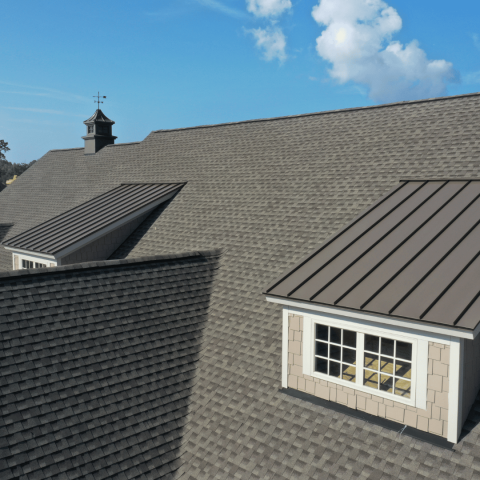Increased heat and dryness due to climate change put us at greater risk for fire. In fact, Colorado experiences significant fires year-round. When flames reach residential areas, embers can land on roofs and spread from house to house. So, residents are asking themselves: do roofing shingles burn?
What is the Fire Resistant Rating System?
Roofing materials are classified into four groups: Class A, Class B, Class C, or Unrated. The ASTM evaluates roof coverings in a controlled environment to determine how fast the flames spread and penetrate the attic. A “stand-alone” rating refers to the material as manufactured. Shingles rated “by assembly” require additional materials and techniques to achieve fire resistance. Be sure to hire a reputable roofing professional to install these.
- Class A is the most fire-resistant shingles. And should always be used in wildfire-prone areas of Colorado. This includes asphalt and fiberglass composite shingles as well as tile and metal roofs that last more than 2 hours before burning.
- Class B materials are effective against moderate fires, lasting 1 hour before catching fire. However, they can be augmented to meet Class A standards. For example, you could imbue cedar shakes with fire retardant chemicals, but these lose effectiveness over time.
- Class C provides minimal protection of 20 minutes in testing situations. For example, untreated wood shingles or plywood. Therefore, we recommend against installing Class C roof coverings on your home.
- Unrated materials don’t even meet Class C requirements and are a serious fire hazard. Most building codes won’t allow unrated roof covering.
What Roofing Materials are Fire-resistant?
Slate, concrete, and clay tiles are all Class A and non-combustible. They won’t melt or warp in a fire. However, broken or missing tiles can allow flames to spread underneath. Still, a well-maintained tile roof provides excellent protection against Colorado wildfires.
Protecting Your Roof
A fire-resistant roof includes the entire system and how it’s installed. The deck, underpayment, and slope all affect flame spread. Your best bet is to go with Class A rated roof installed by a Colorado roofing professional. Still, keep in mind that fire-resistant is not the same as fire-proof. If you are unsure of your roof’s fire rating, get an inspection from a contractor. Just Roofs and Gutters is here to help with all your roofing needs. Schedule an appointment online today.





